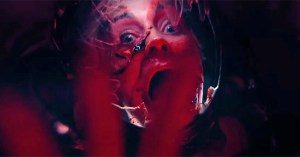RT on DVD & Blu-ray: Wrath of the Titans, 21 Jump Street, and The Artist
Plus, some acclaimed foreign films, the other Snow White movie, and Eddie Murphy bombs again.
This week on home video, we’ve got a number of new releases to talk about, and all of them are, for better or worse, kind of interesting in their own ways. First, we’ve got this year’s Best Picture Oscar winner, a surprising reboot of an ’80s TV show, and the sequel to a poorly-reviewed adventure. Then, we’ve got a funny take on Snow White, Eddie Murphy’s latest misfire, a couple of acclaimed foreign films, and a couple of worthy new Criterion releases. See below for the full list!
The Artist
95%This loving tribute to the silent film era may have seemed like an “eat your veggies” movie upon first glance, but rave reviews and strong word-of-mouth propelled The Artist to five Oscars, including Best Picture, among a slew of other honors. Best Actor winner Jean Dujardin plays George Valentin, an early Hollywood star who takes a chance on charismatic extra Peppy Miller (Berenice Bejo) and launches her film career. Just a couple of years later, however, as the silent film era comes to a close and Valentin’s talents are no longer in demand, now-famous Peppy returns the favor. At a Certified Fresh 98%, The Artist isn’t simply a nostalgic throwback to a bygone era, it’s a clever, stylish film with some fantastic performances.
Wrath of the Titans
26%2010’s fantasy epic remake Clash of the Titans is probably best remembered as the reference point for terribly rendered 3D effects, and it only achieved a 28% Tomatometer. Unfortunately, it also made almost $500 million in box office receipts, and so this year, we were treated to Wrath of the Titans, the inevitable sequel, in which family-man Perseus must spring into battle once again when a godly betrayal places Zeus at the mercy of the Titans. In an interesting twist, while critics were quick to point out the vastly improved 3D, they also generally agreed that almost every other aspect of the film was worse than the first installment. At 25%, Wrath will probably only appeal to those who really enjoyed Clash.
21 Jump Street
85%“Did we really need a big screen reboot of 21 Jump Street?” This was the question repeated ad nauseum across the interwebz back in March when the Jonah Hill-Channing Tatum buddy cop comedy first opened. The answer, posted only slightly less frequently, was usually something like, “No, but hey, it’s actually pretty good.” Hill and Tatum play rookie cops who are partnered up and tasked with masquerading as high school students in order to bust a teen drug ring; in the process, they develop an unlikely friendship, shoot some bad guys, and go to prom. Critics agreed: if you’re going to revive a long-forgotten pop culture relic for new audiences, this is the way to do it. 21 Jump Street is smart but goofy, referential but slyly self-aware, and, above all, a pretty satisfying romp.
Mirror Mirror
50%While Snow White and the Huntsman redefined the classic fairy tale as a dark adventure, Mirror Mirror translated it into a screwball comedy. Headlined by Julia Roberts, Lily Collins, and Nathan Lane, Mirror Mirror unfortunately does little to separate its story from those already familiar to most audiences, and director Tarsem Singh’s (The Fall, Immortals) typical visual flair can only make up for so much. While the film is rather unsurprisingly beautiful to look at, and there is some fun to be had in its campy sense of humor, its uninspired storytelling and lack of originality place it squarely in mediocre territory.
A Thousand Words
0%Oh, how the mighty have fallen. Eddie Murphy’s recent box office failures are well documented, but never has a film?s premise so blatantly sabotaged its star like A Thousand Words. Here, Murphy plays Jack McCall, a fast-talking literary agent trying to secure a deal with a new age guru (Cliff Curtis), who promptly sees through Jack’s lies and curses him. A magical Bodhi tree suddenly appears in Jack’s back yard, and every time Jack speaks a word, a leaf falls from the tree; when the final leaf drops, Jack is also done for. Eddie Murphy may not be the mad comic genius he once was, but it certainly seems counterintuitive to rob him of his most valuable asset — his razor-sharp tongue — and then try to build a film around that premise. The critics certainly took notice: at 0% on the Tomatometer, A Thousand Words is currently the worst-reviewed movie of the year.
Bullhead
87%A couple of weeks ago, we wrote about In Darkness, one of 2011’s Oscar nominees for Best Foreign Language Film. This week, we have another: hard-hitting Belgian drama Bullhead. The story focuses on a steroid-addicted cattle farmer named Jacky, who is propositioned for shady deal with a mafioso meat trader; circumstances change, however, when a federal police officer is murdered and secrets from Jacky’s past come back to haunt him. Currently Certified Fresh at 83%, Bullhead impressed most critics with its cinematography, its dark but stylish atmosphere, and a standout lead performance from Matthias Schoenaerts. Overall, it’s a powerful, noteworthy debut for director Michael R. Roskam.
Once Upon a Time in Anatolia
92%The second foreign language film in this week’s lineup is decidedly different from Bullhead. From Turkey comes Once Upon a Time in Anatolia, a contemplative, slow-burning crime story that takes place over the course of one night. In this police procedural, a number of investigators cruise the Anatolian countryside, led by two murder suspects to what they hope is the location of their victim’s body. The problem is, both suspects claim to have been drunk, and neither is quite forthcoming with precise details. Anatolia‘s dark atmosphere, beautifully shot scenes, and carefully layered characters drew a wide range of praise from critics, who anointed it with a Certified Fresh 94%.
The 39 Steps – Criterion Collection
96%The 39 Steps is the story of a man (Robert Donat) who stumbles into a dark conspiracy that forces him to go on the run from a sinister espionage ring, and while he attempts to elude both the police and the bad guys, he ends up handcuffed to beautiful woman (Madeleine Carroll). In other words, this 1935 thriller is classic Alfred Hitchcock; many of the key elements of The 39 Steps would be reconfigured in years later in North By Northwest. A new Criterion Blu-ray features a fresh transfer of the film, along with audio commentary, a radio performance of the story, archival interviews with Hitchcock, and a documentary about the Master of Suspense?s British films.
The Samurai Trilogy – Criterion Collection
Toshiro Mifune is probably best known for his collaborations with Akira Kurosawa on some of Kurosawa’s most revered films, but in the mid-1950s, Mifune also starred in an epic trilogy about one of Japan’s most celebrated folk heroes, the legendary swordsman Musashi Miyamoto. Directed by Hiroshi Inagaki, The Samurai Trilogy is comprised of three films: 1954’s Musashi Miyamoto, which won the Oscar for Best Foreign Language film, 1955’s Duel at Ichijoji Temple, and 1956’s Duel at Ganryu Island, all of which are classics of the period samurai genre. This week, Criterion releases a new box set of the trilogy with new hi-def restorations and an interview with a historians about the real life of Musashi.





